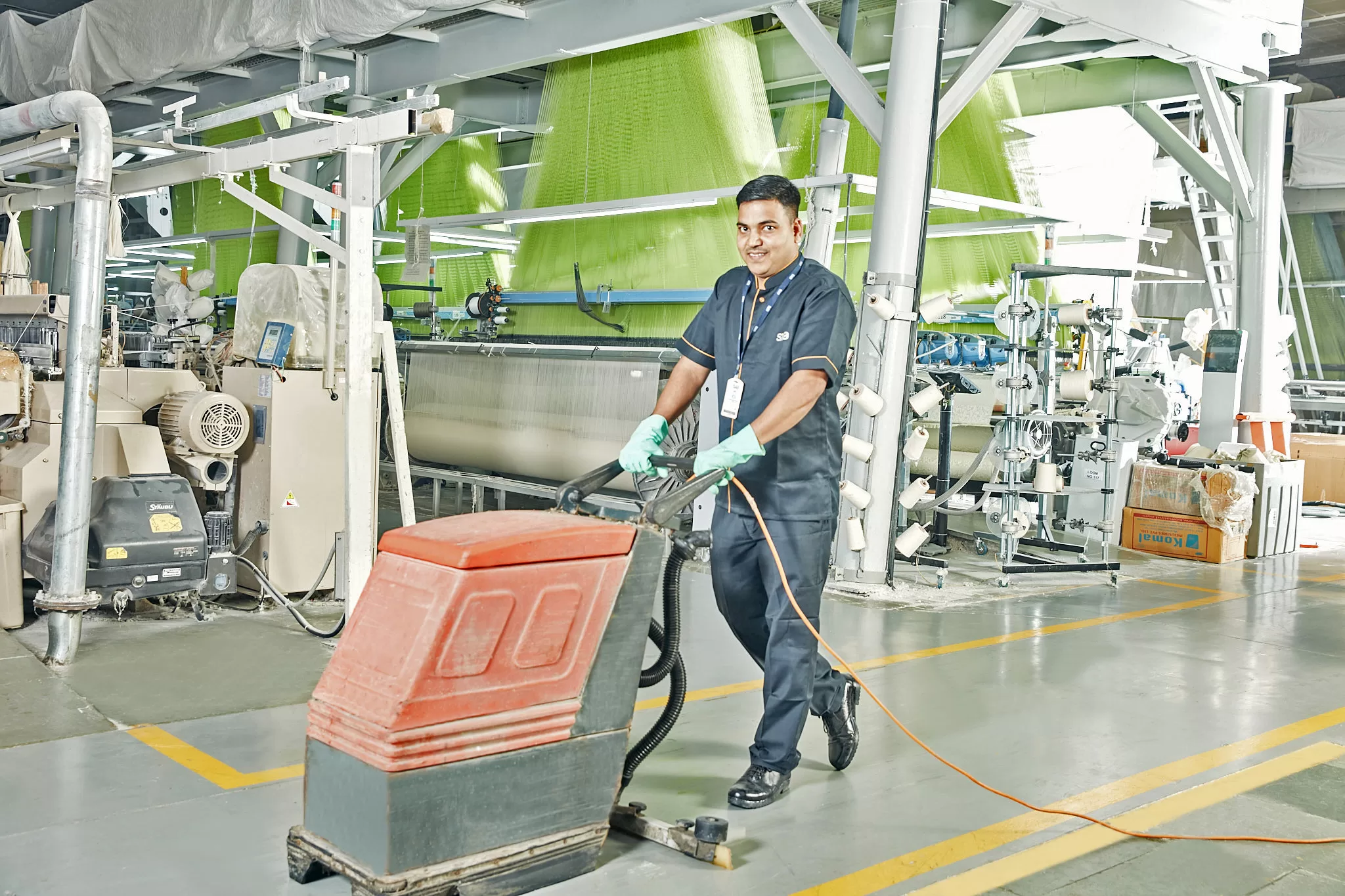The world of facilities management has undergone a seismic shift over the last few decades. What was once a manual, labor-intensive industry is now driven by advanced technology, automation, and smart solutions. This evolution has transformed the way facilities management companies operate, enabling them to deliver more efficient, cost-effective, and sustainable services. At the forefront of this transformation is SILA, a leader in facility management services in India, using smart technology to redefine industry standards.
In this blog, we’ll explore the evolution of facilities management from traditional manual operations to the smart, automated solutions that are now shaping the future of the industry.
The Early Days: Manual Operations and Reactive Maintenance
In the early days of facility management, operations were largely manual, and tasks were completed on an ad hoc basis. From housekeeping to maintenance, every aspect of facility management required hands-on labor. Reactive maintenance was the norm, with teams fixing issues only after they had escalated into major problems. This not only led to inefficiencies but also increased operational costs as assets would often fail before being maintained.
Challenges of Traditional Facility Management:
Labor-Intensive Tasks:
Operations such as cleaning, maintenance, and security relied heavily on manpower, leading to higher costs and inefficiencies.
Reactive Maintenance:
Without advanced data or tracking systems, teams would address issues as they arose, often resulting in costly repairs or replacements.
Limited Visibility:
Facility managers lacked the tools to have real-time insights into their buildings, making it difficult to optimize operations and plan preventive maintenance.
The reliance on manual operations left facility management companies struggling with inefficiencies, unplanned downtime, and inflated operating costs.
The Transition: Introducing Technology and Automation
The turning point for the facility management industry came with the advent of technology. Over the past two decades, facility management companies started integrating new technologies to streamline operations. Automation tools, computerized systems, and Internet of Things (IoT) devices began transforming the industry. These innovations enabled companies to shift from reactive to preventive maintenance, offering a more proactive approach to facility management.
Key Developments in the Transition Phase:
Building Management Systems (BMS):
Facility management teams began using BMS to control and monitor building operations such as HVAC, lighting, and security systems.
Preventive Maintenance:
With the help of computerized systems, teams could predict equipment failure and schedule maintenance ahead of time, reducing downtime.
Energy Management Systems:
Technology allowed for better control over energy usage, helping facility managers reduce energy costs and minimize the environmental footprint.
This transition phase helped reduce human errors, lowered operational costs, and improved the overall efficiency of facilities management.
The Future is Now: Smart, Automated Solutions in Facility Management
Today, we have entered the era of smart, automated solutions, and facility management companies like SILA are leading the charge. The integration of IoT, data analytics, and artificial intelligence has revolutionized how facilities are managed. Smart systems now monitor building operations in real-time, predict maintenance needs, and automate routine tasks, significantly reducing costs and improving sustainability.
SILA’s Smart Solutions:
IoT-Driven Insights:
SILA leverages IoT devices to gather real-time data on building operations. Sensors installed throughout facilities monitor everything from energy consumption to temperature, providing real-time insights that enable predictive maintenance and optimize resource allocation.
Automation of Routine Tasks:
SILA automates routine tasks such as lighting and climate control, which not only reduces manual intervention but also ensures optimal energy usage and comfort levels. By automating these processes, facilities can cut down on energy costs and increase operational efficiency.
Predictive Maintenance:
SILA uses predictive analytics to monitor the health of critical equipment. Instead of waiting for equipment to fail, predictive maintenance ensures that repairs are made before breakdowns occur, minimizing downtime and reducing repair costs.
SILA Connect:
SILA’s tech-driven platform, SILA Connect, integrates facility management services into one centralized system. It automates compliance management, tracks assets in real-time, and provides insights into operational performance. This smart platform helps facility managers make data-driven decisions to improve efficiency and reduce costs.
The Benefits of Smart, Automated Facility Management Solutions
The shift to smart, automated solutions offers a range of benefits that extend beyond cost savings and operational efficiency. For businesses aiming to align with sustainability goals, automated facility management plays a key role in reducing the environmental impact of building operations.
Energy Efficiency:
Smart systems can automatically adjust lighting, heating, and cooling systems based on occupancy and environmental conditions. This reduces energy wastage and helps businesses lower their carbon footprint, contributing to their environmental sustainability goals.
Enhanced Operational Efficiency:
By automating routine tasks and providing real-time data on building operations, smart solutions free up facility managers to focus on higher-value tasks. This improves overall operational efficiency, leading to better service delivery and a more seamless experience for building occupants.
Predictive Asset Management:
Predictive analytics allow facility managers to anticipate and address maintenance needs before issues arise. This reduces unplanned downtime and extends the lifespan of critical assets, lowering long-term repair and replacement costs.
Improved Workplace Environment:
Automated systems create a more comfortable and productive workplace environment by regulating temperature, lighting, and air quality. This leads to higher employee satisfaction and improved productivity levels.
SILA’s ESG Commitment: Sustainability Through Smart Solutions
One of the standout advantages of smart, automated facility management solutions is their contribution to sustainability, which aligns with SILA’s commitment to ESG goals. By leveraging smart technologies, SILA helps clients reduce their environmental footprint and contribute to long-term sustainability goals.
Sustainability in Action:
Energy Monitoring:
SILA’s automated systems optimize energy usage, minimizing waste and reducing greenhouse gas emissions.
Water Management:
Automated water systems track usage and detect leaks in real-time, conserving water resources and reducing costs.
Waste Reduction:
SILA integrates smart waste management systems to reduce landfill waste and encourage recycling efforts.
SILA’s commitment to ESG is woven into every aspect of its operations, and by adopting smart, automated solutions, the company helps clients lead the way in sustainable business practices.
Adding Value to Your Bottom Line
One of the significant benefits of partnering with a top facility management company like SILA is the potential impact on your bottom line. Here’s how SILA’s facility management services can contribute to your financial success:
Conclusion: The Future of Facility Management
The evolution of facility management from manual operations to smart, automated solutions is reshaping the industry. As a leader in this transformation, SILA is helping businesses embrace the future with cutting-edge technologies that improve efficiency, reduce costs, and align with ESG goals. By choosing a forward-thinking facility management partner like SILA, businesses can ensure they are well-equipped to meet the challenges of tomorrow while contributing to a more sustainable, efficient, and cost-effective future.
SILA adopts a tech-driven approach, utilizing Robotics and IoT, Automated Compliance Management, and our proprietary technology (SILA Connect) to efficiently manage properties across India. As pioneers in technology within the facility management sector, SILA stands out as one of the best Facility management companies in India.
Industries We serve –
Commercial Offices & Buildings | Manufacturing & Heavy Industrial Facilities | Residential Complexes & Townships | Hotels & Campuses | Airports & Malls | IT Parks & Data Centers | Warehousing & Logistics Parks | Banks & Retail
Present in 125 cities –
Ahmedabad | Baroda | Bengaluru | Chennai | Bhubaneswar | Delhi | Gurugram | Noida | Kolkata | Hyderabad | Kochi | Mumbai | Pune & more
Get a free quote today, to reduce your facility management cost.
Also Read: Choosing the Right Facilities Management Company for Your Industry: A Comprehensive Guide by SILA
FAQs
1.What are the key challenges faced in Facility Management?
Challenges may include maintaining ageing infrastructure, ensuring compliance with industry regulations, optimizing energy usage, managing risks associated with hazardous materials, and adapting to technological advancements.
2. What strategies are used to ensure safety in facilities?
Safety protocols, regular safety training for occupants of the space, implementation of proper equipment maintenance schedules, conducting risk assessments, and compliance with safety regulations are some strategies employed to maintain a safe working or living environment.
3. How does outsourcing Facility Management lead to cost savings?
Facility Management proves to be cost-effective. Managing spaces in-house can incur significant expenses. However, outsourcing it not only reduces the time your staff spends overseeing facility operations but also results in long-term savings.
4. How does Facility Management play a key role in an organization's success?
Facility Management (FM) plays a pivotal role in an organization’s success by contributing to various aspects that directly impact efficiency, productivity, and overall performance. FM ensures that the physical workspace, infrastructure, and systems are well-maintained, safe, and conducive to work. A properly managed facility promotes productivity among employees by providing a comfortable and efficient working environment.
About SILA -
SILA – A Real Estate platform driven by an entrepreneurial spirit.
Our businesses include Real Estate Services which offer Facility Management, Contracting Solutions and Real Estate Advisory. Our other business is Real Estate Development. We have a diverse client base in various sectors which include large Corporates, Real Estate Funds, Landowners and Developers.
Over the last decade, SILA has scaled efficiently, managing over 150 million square feet of assets, with over 22,000 employees pan India. The platform is backed by Norwest Venture Partners and Samara Capital Group in our Real Estate Services and Development arms, respectively.
SILA is one of the best property management companies in Bangalore, Mumbai, Delhi, Chennai, Hyderabad, Pune & more.
SILA is among the top facility management companies in India, offering comprehensive facility services management in India. As a leading integrated facility management company, SILA provides tailored FM solutions, including housekeeping services in Mumbai. Leveraging our expertise, we ensure seamless property management for clients nationwide. Whether you require housekeeping agency support or specialized facility management solutions, SILA delivers excellence in every aspect of your property’s upkeep and maintenance.
About Author -

Aniket Sheth
The insightful content in this blog is curated by Aniket Sheth, our esteemed Senior Vice President of Operations. With an impressive professional journey spanning over 13 years, Aniket has held key positions at prestigious brands, showcasing his exceptional leadership skills.
Aniket’s educational background is marked by an MBA from Cornell University, which laid the foundation for his successful career. He began his professional journey at EY in New York, contributing significantly to enhancing and implementing engagements for Fortune 500 companies.
Aniket’s strategic acumen, proficiency in asset management, and forward-thinking innovation have been instrumental in helping companies streamline their operations and achieve substantial cost reductions. His wealth of experience brings a unique perspective to the world of facilities management, making his insights invaluable for businesses seeking operational excellence.


